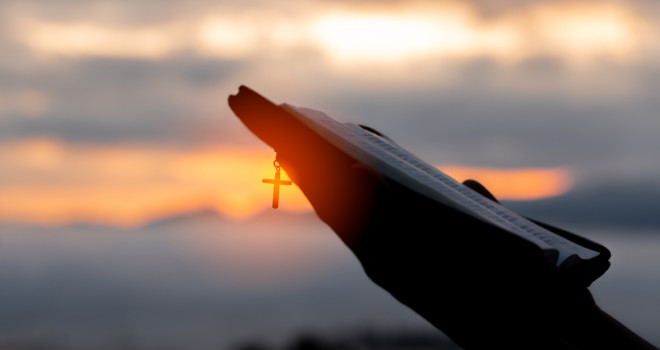It was the summer of 1964 when a friend and I attended an outdoor concert at the Hatch Memorial Shell on the esplanade along the banks of Boston’s Charles River. Great music is elevating. Therefore, it is fitting that it be played under a canopy of stars. The featured work that July evening was the popular Tchaikovsky first piano concerto. At the piano was a seventeen year old prodigy by the name of Eugen Indyic. He performed brilliantly and won high praise even from members of the orchestra. The myriad of music lovers, sitting on the grass or on blankets, filled the night air with rapt heartfelt applause.
My companion and I, hoping to meet the pianist, went to the back of the Shell after the concert ended. We were most fortunate. Not only did we meet the star of the evening, but also his teacher, the renowned concert pianist Alexander Borovsky. We could render thanks in a personal manner. Shaking hands with another is preferable to clapping one’s own hands. A conversation ensued. Knowing Borovsky’s close relationship with Sergei Prokofiev, I suggested that our Boston audience was ready for a less popular, though no less excellent, concerto, one by Prokofiev. Borovsky looked at me earnestly and asked if the Third would be most suitable. Naturally, I agreed. But I will never forget the graciousness of these two gifted musicians.
Personal thanks is on a higher plane than impersonal applause. Judy Garland, who never lacked for applause, was keenly aware of the impersonal quality of hearing an audience slap their hands together. “In the silence of night,” she once said, “I have often wished for just a few words of love from one man, rather than the applause of thousands of people”. Eugen Indyic has gone on to a splendid career having won awards in three international piano competitions. Referring to his musical versatility, one critic said of him that he plays Chopin like a Pole, Debussy like a Frenchman, and Prokofiev like a Russian.
An audience thanks a good performance with applause, which is a severely limited and highly impersonal expression of its gratitude. Should a symphony be immediately followed by cacophony? Emanuel Ax, a celebrated pianist in his own right, thinks that a respectful pause should follow a performance before the clamor of applause begins. “Sometimes I wish,” he says, “that applause would come just a bit later, when it is so beautifully hushed that I feel like holding my breath in the silence of the end”. Some contemporary conductors ask the audience to wait a moment before he gives them the signal to applaud. A moment of silence is a beautiful way to honor the performance.
How different thanks is from applause! We get a clear sense of the magnitude of this difference when we think how appropriate it is to have a National Day of Thanksgiving and how absurd it would be to have a National Day of Applause. When we place close attention to Christ’s words at the Last supper we realize that He was celebrating a Feast of Thanksgiving: “After taking the cup, he gave thanks and said, ‘Take this and divide it among you. For I tell you I will not drink again from the fruit of the vine until the kingdom of God comes’. And he took bread, gave thanks and broke it, and gave it to them, saying, ‘This is my body given for you; do this in remembrance of me’” (Luke 22:14-20). It would have been sacrilegious for the apostles, on this day of thanks, to have applauded Christ at the Last Supper for instituting the Eucharist.
Various popes have been quite clear in denouncing applause during Mass. “If I must express a wish,” Saint John XXIII once told a group of people who had waited for him to arrive at a church outside of Rome, “it is that in church you must not shout out, that you not clap your hands”. “It is not fitting that the servant should be applauded in his Master’s house,” stated Pope Saint Pius X”. Cardinal Joseph Ratzinger (before he became Pope Benedict XVI) was quite firm on the matter: Whenever applause breaks out in the liturgy because of some human achievement, it is a sure sign that the essence of liturgy has totally disappeared and been replaced by a kind a religious entertainment. Such attraction fades quickly – it cannot compete in the market of leisure pursuits, incorporating as it increasingly does various forms of religious titillation” (The Spirit of the Litturgy).
We should not applaud the choir for singing well because the choir is praying to God, not specifically to the congregants. Silence is part of the liturgy. It is a most respectful way of honoring God and, at the same time, giving Him thanks that proceeds directly from the heart.
God does not need our applause. He wants our thanks. Applause does not connote relationship. Often, it is given as an obligation. “I don’t’ want advice,” Mussolini shouted, “I want applause”. The last thing the Italian dictator wanted was to form a relationship with his people. He wanted undeserved praise. God wants us to be thankful because he wants us to establish a relationship with Him. True thanks comes from the heart as a response to a gift that also comes from the heart. Hence, unlike applause, thanksgiving implies a relationship.
This Thanksgiving it may be to spiritually profitable to meditate on the difference between applause and thanks and to give thanks to God from one heart to another.
✠












